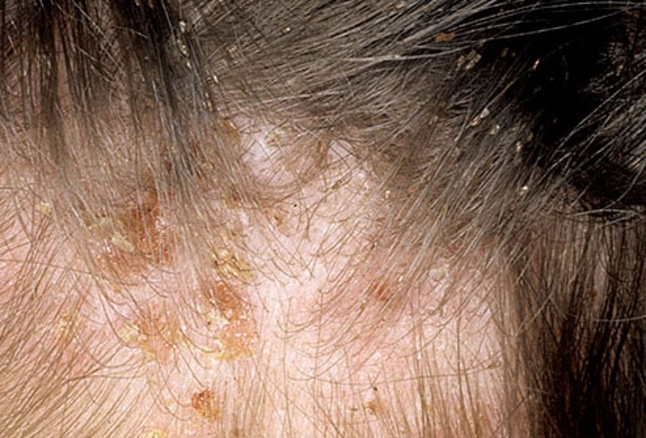Lice (kutu) is one of the most irritating insects that we can encounter. There are a lot of lice types in this world. Be it cat lice, head lice or rice lice, all of them will always trouble us in different ways. One of the lice that is commonly associated with humans is head lice. What is head lice? Head lice are tiny little insects that feed on blood from our scalp. Once they sit on our head, they will grow a colony by laying their eggs. Usually, a female louse can lay its egg eight times per day. That is a high number of eggs. The eggs will then stick to the hair shaft and will crack in a week, producing a high number of lice everyday. This is the reason why head lice infection is quite troublesome.
Another reason why they are troublesome is because of the signs and symptoms that they produce. These symptoms are enough to make us busy caring and thinking on how to remove them from the scalp everyday. As a result, we can no longer do our daily activities with ease. So, how do you recognize that your scalp was invaded by head lice? What are the signs and symptoms of head lice infection? Below are the lists that are usually experienced by humans.
- Itchiness
This is the most common symptom of head lice infection. When someone is bitten by a louse, the body will trigger an allergic reaction that makes us feel very itchy. Usually, itchiness can be found at the lice feeding site, which is around the scalp, neck and also ears. For one bite, the itchiness can last for weeks. Imagine if they are hundreds of lice on the scalp? People with head lice infection are found scratching their head most of the time. This will obviously hinder their daily activities. It will also be hard for them to get enough sleep. However, itchiness will not occur straight away after a feeding session. It usually takes four to six weeks before we start to feel very itchy on the scalp.
- Lice on scalp
A lice size is very small. The size is comparable to a strawberry seed. Although they are small, it is not impossible to notice them with our bare eyes. We can see some lice on someone’s scalp that suffer from head lice infection. However, it might be very difficult to see them as they move very quickly. Lice can crawl very fast and they usually avoid the lights. So, if you want to look for lice on your scalp, be sure to avoid using any direct lights and do the searching as quickly as possible.
- Lice eggs on hair shaft
A lice egg is also called as nits. Nits is even smaller when compared to lice. They will stick to the hair shaft and are very difficult to see. It is easier to see them when they are situated around the ears and at the hairline of the neck. Besides, spotting an empty egg is easier since the color will become lighter.
- Scalp, neck and shoulder sores
Head lice infection is not without its complication. Excessive scratching due to itchiness can cause red bumps. These bumps have a tendency to get injured and bleed. When this happens, an infection can also occur. This will lead to soreness on our scalp, neck or shoulder. Someone with infection needs to immediately see a doctor in order to receive adequate treatment as soon as possible.


